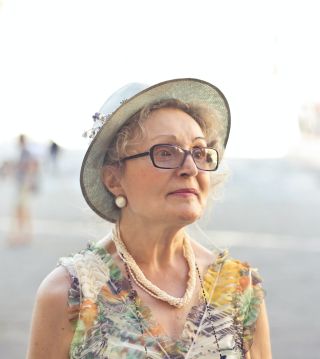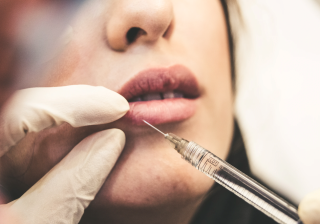Aging
Aging: An Opinion
Personal Perspective: How do we really feel about getting older?
Posted October 2, 2023 Reviewed by Gary Drevitch

I’m 62 years old. Sometimes I can’t believe I’m this old as I look back and wonder where all the time has gone. I’ve entered the decade in which my mother passed away — she died at 67 of pancreatic cancer. But as numerous people have pointed out to me, she smoked four packs of Lark cigarettes a day and worked seven days a week; I believe these were the coping mechanisms she used to deal with the severity of my mental illness. She was overweight most of the time, except when she stepped up her bulimia, and then she lost an excessive amount of weight in a short time. But she always gained it back. I can’t recall her ever going to a doctor. She must have been in a tremendous amount of pain when she sought medical help for what were the signs of the cancer.
My father passed away at 81 from sepsis. He didn't take care of himself either, eschewing the doctor and the dentist. I remember his teeth were rotting out of his mouth and by the time we got him to the hospital — by the time he was willing to go because he was feeling so badly — so much was wrong that he never made it back home.
I, on the other hand, have been diagnosed with numerous medical conditions, including a stroke I had in 2018, asthma, migraines, coronary artery spasms, and undifferentiated connective tissue disease. Not to mention the severe mental illnesses I have dealt with for most of my life and have since recovered from: anorexia, major depressive disorder, and borderline personality disorder. Will all of these shorten my life? Probably. By how much is unknown. One study states that “patients suffering from severe mental disorders, including schizophrenia, major depression, and bipolar disorders, have a reduced life expectancy compared to the general population of up to 10–25 years.” The study goes on to say that “this high mortality rate is not due to mental illness per se, rather it is the consequence of the simultaneous presence of comorbid physical health problems, such as cardiovascular, respiratory, metabolic, infectious diseases and cancer." In addition, people with severe mental disorders are at higher risk of developing obesity and metabolic syndrome than the general population.

I don’t consider myself a vain person. I’ve never gotten Botox (except as a treatment for my migraines) or any fillers to erase the lines in my face. Those don’t bother me. I do color my hair; I suppose because grey hair doesn’t fit with how I feel as a 62-year-old who doesn’t always feel like I’m 62. I’d never consider having plastic surgery at this point in my life, although I did have breast reduction surgery when I was 25 and it was one of the best things I ever did for myself. According to the American Society of Plastic Surgeons, in 2022, there were a total of 346,384 facial plastic surgery procedures as opposed to the pre-pandemic year of 2019 when there were 294,004 procedures. That’s a 37 percent increase, compared to a 25 percent increase in breast procedures and an 18 percent increase in procedures on the body.
Why do people seek out plastic surgery? One study that looked at acceptance of cosmetic surgery based on personality and individual difference predictors showed a strong correlation with participants’ self-rated attractiveness and self-esteem. A second study found that body dysmorphic disorder, education, and culture are also predicting factors in the decision to have cosmetic surgery.
I want to be able to live into the future being relatively healthy, and to work at least sometime into my seventies, as social work is predominantly a cognitive undertaking. I lost out on many years of income due to my mental illness and I most likely won't be able to afford to retire before then. I would like to be able to continue to live independently and not have to depend on anyone.
Lines, wrinkles, and a couple of age spots don’t bother me. It’s not that I look in the mirror and don’t see them; I do. I especially see the bags under my eyes; my mother had them worse than I do, but I blot on a little bit of concealer and hope for the best. I’m not obsessed with looking perfect every time I step out of my front door, which is freeing.
What is most important to me is what’s on the inside. I learned that a long time ago as I was healing from my mental illness. On a locked psychiatric unit, clear skin isn't going to get you very far. For me, the healing had to start with awareness and acknowledgment and continue with insight and integration.


